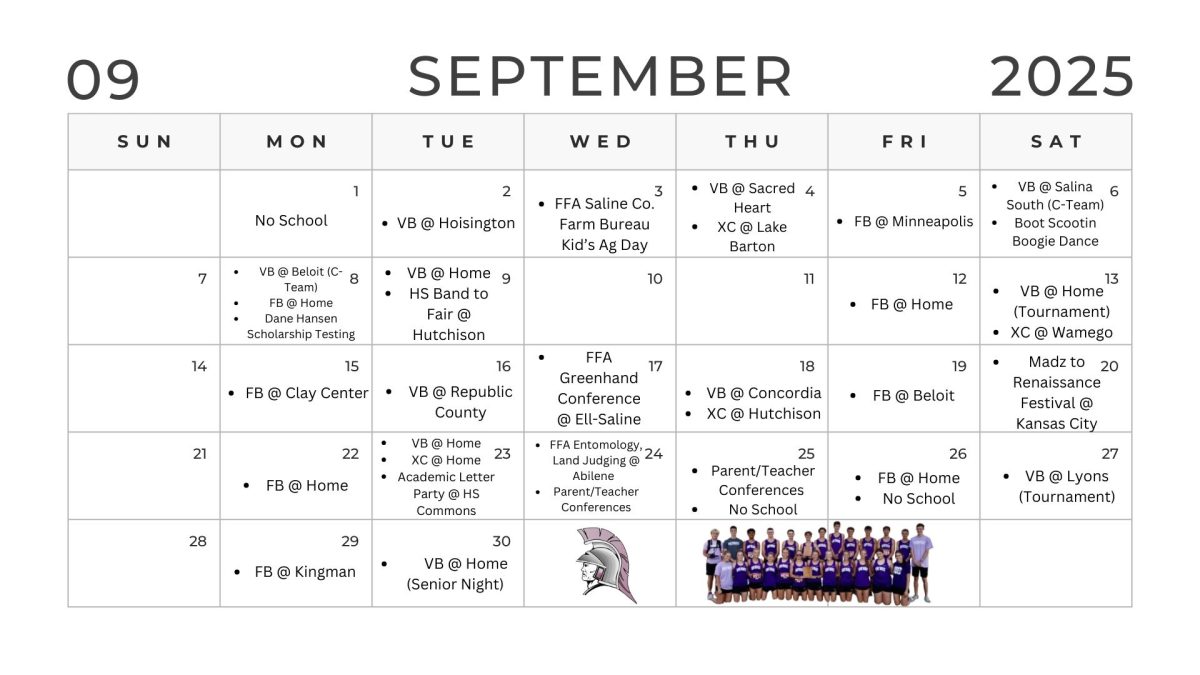There are 2.8 million Generation Alpha kids born each week; that is 400,000 every day. It is expected to become the largest generation in history at more than two billion (Ruben). Googling the words “Gen Alpha” yields many results. “Gen Alpha can’t read”, and “Gen Alpha is doomed” are just a few. Add the word “is” behind it, and more shocking answers appear: “Is Gen Alpha bad…illiterate…stupid… getting dumber?” Why are these the questions people worldwide are asking about Generation Alpha, and why do other generations despise them already?
Every 15-20 years, the world births a new generation. The characteristics that define a generation are determined by “how global events and technological, economic, and social changes interact…” (Dimock). Generation Alpha (born 2010-2024), so far, has been categorized based on its technological connections. Gen Alpha children have used technology much more than necessary, making it an insurmountable problem. “Most Gen Alphas have become addicted to screens…children between 8 and 12 years spend an average of 4 hours and 44 minutes in front of a screen,” (Shewale). The pandemic also contributed highly to Gen Alpha’s average screen intake. The eldest of Gen Alpha turned 11 in 2020, the beginning of the pandemic. Although the pandemic showed the importance of tactile learning, it also implemented the use of technology much more in schools. Technology was the best and fastest way to ensure students at home were able to have access to education. “Educators quickly pivoted from teaching students in person on-campuses to virtually online. This change necessitated creative use of educators’ existing technology skills and development of new skills to teach with technology,” (Siegle). While technology is a large contributor to Gen Alpha’s brand, the pandemic proves to be an equivalent contributor.
Gen Alpha’s deprivation of a realistic school experience during the pandemic influenced the generation’s ability to learn properly. The problem is reflected in many places: both in U.S. literacy tests and in classroom behaviors. Reading and math tests among Gen Alpha kids across the country report the lowest scores since 1970 (Elliott and Carr). This isn’t to say that it’s entirely the fault of the amount of technology they consume; the pandemic as a whole disrupted Gen Alpha’s learning abilities greatly. However, their reading and math scores have continued to stay low since the pandemic. The commissioner of the National Center for Educational Statistics, Peggy Carr, says: “…there was this expectation that perhaps we would see some movement back to the performance level that we picked up in the fall of 2019…the declines are just as stark as they were before.” She also finds that the scores of students—those who struggled before the pandemic—dropped more quickly than those who weren’t struggling to that extent. Carr speculates that the increasing mental health crisis and crime rates in the United States are other prominent reasons for Gen Alpha’s declining test results.
The behavior of Gen Alpha kids attests to the claims that many are making about the misguided generation. Many teachers who have taught Generation Alpha children have complained and come forward about how outrageous and unruly some behavior is. Technology has been proven to cause impatience and irritability; attention spans are limited due to heightened technology use. “Constant digital stimulation is one of the primary reasons why children’s attention spans are short…With the advent of the internet, students have become used to receiving information in small, bite-sized pieces…[this habit] can carry over into their schoolwork and make it difficult for them to focus on longer tasks or lectures,” (Simon). These symptoms are apparent in Gen Alpha kids. The number of first-hand accounts dealing with the behavioral issues of Gen Alpha kids is appalling. One particular story from Conrad Tan provides ample evidence that Gen Alpha kids often misbehave. “My experience as an [sic] LIT (leader-in-training) at a summer camp was none other than a living hell…[k]ids of this new generation are loud, restless and incredibly difficult people to work with socially. Always interrupting leaders during activities, having little respect for one-another and unable to sit still for more than a few minutes,” (Tan). The abundance of information from different sources testifies to the fact that Gen Alpha’s behavioral issues correlate to several things: the combination of technological advancements, the consequences of habitual internet use, and the encouraged technology use among said younger generation has contributed to Gen Alpha’s prompt societal downfall.
There is certainly something to say about the overwhelming stigma surrounding Generation Alpha; many adults seek to voice their opinions of the generation. To Ginger Lidsky, a 13-year-old Gen Alpha kid, the constant bashing and chastising of her generation is getting old. She does an article review on Morning Consult’s “A Brand’s Guide to Gen Alpha” which she heavily criticizes. The report itself documents how “brand conscious” Gen Alpha is and how the majority of the generation’s kids (61%) are on their phones for up to 13 hours as a result of no parental control. A more reliable source states that a majority of Gen Alpha kids who own a smartphone are on it an average of four hours a day (McCrindle and Fell, p. 17). Lidsky doesn’t believe this since she states that she has “never heard any parents say ‘I just toss my phone into her crib and let her do whatever she wants.’” The article she reviews isn’t entirely reliable; it contains pie charts that make no sense and unrealistic statistics in other areas. Lidsky thinks that adults are quick to judge Generation Alpha because of the environment they were thrust into. “It makes us seem as if we’re tech wizards and cyborgs who spend our days in virtual reality…This report is a silly attempt to document Gen Alpha like we’re an alien species. It makes Gen Alpha seem like magical beings from the future who will only take off our VR headsets to go to McDonald’s.”
Although Generation Alpha is seldom referred to as extraordinary by other generations, those kids certainly can rise above the negative feelings nearly every generation holds for them. They may be relatively tech-obsessed and have arguably the lowest sets of math/reading scores since the 70s, but that isn’t all that defines Gen Alpha. They had to endure the difficulty of learning technologically during a worldwide pandemic while being introduced to new technology so frequently at a young age. There are criticisms for every generation in the world and that won’t change anytime soon; regardless of the social changes the world undergoes, there will always be a reason to criticize the new generation. ♦
Works Cited
Dimock, Michael. “Defining generations: Where Millennials end and Generation Z begins.” Pew Research Center, 17 January 2019, https://www.pewresearch.org/short-reads/2019/01/17/where-millennials-end-and-generation-z-begins/. Accessed 8 February 2024.
Elliott, Debbie, and Peggy Carr. “U.S. reading and math scores drop to their lowest levels in decades.” NPR, 22 June 2023, https://www.npr.org/2023/06/22/1183653578/u-s-reading-and-math-scores-drop-to-their-lowest-levels-in-decades. Accessed 14 February 2024.
Lidsky, Ginger SV. “I’m Gen Alpha. Adults should stop talking about us like we’re aliens.” Fast Company, 16 March 2023, https://www.fastcompany.com/90866071/gen-alpha-ages-marketing-brands-stop-pov. Accessed 21 February 2024.
McCrindle, Mark, and Ashley Fell. “Understanding Generation Alpha.” 2020, p. 17. Generation Alpha, https://generationalpha.com/wp-content/uploads/2020/02/Understanding-Generation-Alpha-McCrindle.pdf. Accessed 21 February 2024.
Ruben, April. “Who is Generation Alpha?” Axios, 1 January 2024, https://www.axios.com/2024/01/01/gen-alpha-charactertistics-technology-school-climate. Accessed 21 February 2024.
Shewale, Rohit. “Generation Alpha Stats For 2024 (Insights & Trends).” DemandSage, 28 December 2023, https://www.demandsage.com/generation-alpha-stats/. Accessed 14 February 2024.
Siegle, Del. “Turning Lemons Into Lemonade: Technology Teaching Tips Learned During COVID-19.” NCBI, January 2023, https://www.ncbi.nlm.nih.gov/pmc/articles/PMC9708529/. Accessed 14 February 2024.
Simon, Herbert. “Decreasing Attention Spans And The Effects On Learning – Jennifer Oaten.” Santa Maria College, 26 August 2022, https://santamaria.wa.edu.au/decreasing-attention-spans-jennifer-oaten/. Accessed 15 February 2024.
Tan, Conrad. “Generation Alpha — how much worse will this get?” Medium, 18 August 2023, https://medium.com/@tanc9101/generation-alpha-how-much-worse-will-this-get-d32dbf6e670e. Accessed 15 February 2024.

















